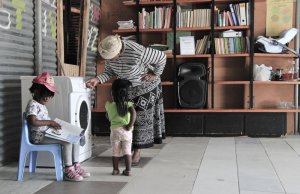 There’s a new kid on the block on Sesame Street and her name is Julia. Why did this make news? Because this would mark the first character with autism on the supremely successful TV show that has been running for over 35 years now. Jeanette Betancourt, Sesame Workshop’s Senior Vice President of U.S. social impact, told Aljazeera that it took three years of research and consultations with experts from institutions such as the Yale Child Study Center to bring Julia to life. So why is this such a big deal? Well, a recent study by the National Bureau of Economic Research suggests that the TV show has had its fair share of positive impact on the youngest minds in the country. “It is the largest and least-costly early childhood intervention intervention that’s ever been implemented in the United States,” said Phillip Levine, an economics professor at Wellesley College who co-authored the paper. Continue reading
There’s a new kid on the block on Sesame Street and her name is Julia. Why did this make news? Because this would mark the first character with autism on the supremely successful TV show that has been running for over 35 years now. Jeanette Betancourt, Sesame Workshop’s Senior Vice President of U.S. social impact, told Aljazeera that it took three years of research and consultations with experts from institutions such as the Yale Child Study Center to bring Julia to life. So why is this such a big deal? Well, a recent study by the National Bureau of Economic Research suggests that the TV show has had its fair share of positive impact on the youngest minds in the country. “It is the largest and least-costly early childhood intervention intervention that’s ever been implemented in the United States,” said Phillip Levine, an economics professor at Wellesley College who co-authored the paper. Continue reading
Context is Key, Even for Investments
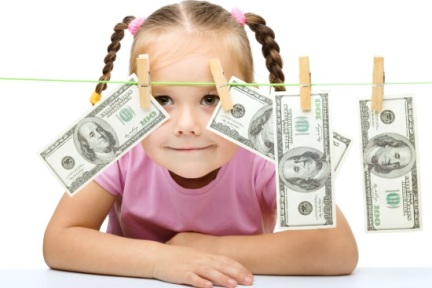
A few weeks before the 13th Education and Development Forum, the Guardian published an article elaborating on the importance of investing in early childhood education. The forum provided a perfect opportunity to discuss and elaborate on the Sustainable Development Goals, specifically Goal 4, and, more broadly, how these goals relate to the world of early childhood. Continue reading
Preschool and Privilege
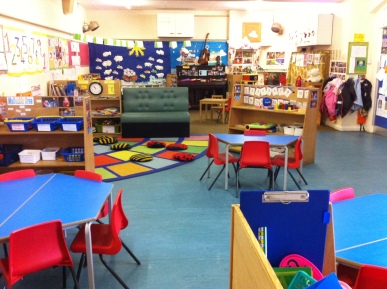
A recent NPR article on the role that parental flexibility plays on school enrollment gave me a lot to think about. My colleague Caitlin has described in detail in her blog post, the effects of inadequate maternity and paternity leave and the benefits of the role that both parents can play in the development of a child, especially in the first few years of his or her life. In an article posted by Huffington post, one can see that the disparity that exists between countries that provide paid leave for mothers and fathers is astounding. The USA joins Papua New Guinea and Swaziland as countries that do not mandate paid maternity leave. This means that large groups of new mothers and fathers, especially where both parents are working are scrambling for help and the quality of that help will depend highly on economic status and family lifestyles.
Another Bottom Line: School Readiness

Zee news, one of India’s major media outlets, recently published an article examining West Bengal’s and UNICEF’s joint early childhood education initiative, Sishu Aloy, aimed at setting up 160,000 ECD centres throughout the state. Just this past Friday (Nov. 27th), 1,000 ECD centres were inaugurated and heralded as a significant step for boosting the school readiness of pre-primary students. Continue reading
Parents, Children, Books, Oh My!
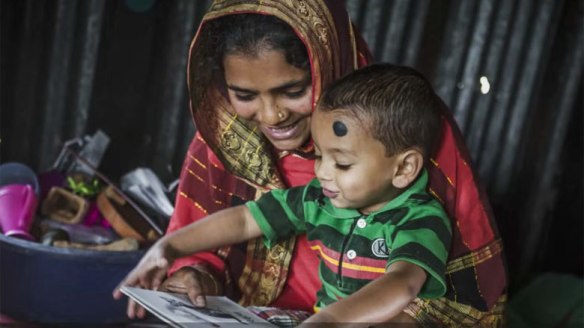 There is much to be said about the world of early childhood development. There are health arguments, school readiness arguments, and economic arguments among others that researchers and policy makers have used to encourage a greater emphasis on planning and implementing programs that benefit the needs of the world’s children. While there are significant obstacles impede a child’s ability to have support and developmentally appropriate interventions in the first few years of their lives, it’s always refreshing to read about the success stories. Continue reading
There is much to be said about the world of early childhood development. There are health arguments, school readiness arguments, and economic arguments among others that researchers and policy makers have used to encourage a greater emphasis on planning and implementing programs that benefit the needs of the world’s children. While there are significant obstacles impede a child’s ability to have support and developmentally appropriate interventions in the first few years of their lives, it’s always refreshing to read about the success stories. Continue reading
Forest Kindergartens Are Not Left Behind

Last week, California’s PBS affiliate published an article, Forest Kindergartens Push Back Against Academic Focus For Young Kids, examining a burgeoning outdoor movement for pre-primary education. Forest kindergartens are held outdoors, in nature, and promote student-led inquiry and learning. For example, students are encouraged to explore the nearby woods and streams, build structures using branches, and draw scenes of their surrounding environment. Particularly, all these activities (and many more) are promoted to emphasize two core tenets: learning by doing and connection with the natural world. Continue reading
What can we learn from Play Time?
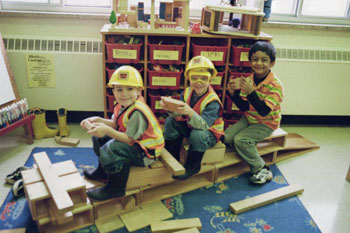
I remember my first day of pre school. I was given a test paper with a few questions and was told to answer them to the best of my ability. I remember feeling excited as I stared down at the shapes and colors in front of me. My mother had taught me shapes just a week ago when we were coloring together and I knew the colors off of books I had seen in our house. I couldn’t be more excited.
However, two benches away my going to be best friend (lets call him Arun) was struggling. He didn’t know his shapes and colors and barely could hold his pencil. Our teacher, made Arun sit separately the whole year, giving him extra tests and less play time as he had more to ‘catch up on’ No more play time for Arun. As our teacher saw it, play time was only for when you did well on your tests. Continue reading
Can We Do It?
Did you know that the United States had universal childcare at (just) one point in its history — between the years 1943 and 1946? This week, The Atlantic published an article entitled, “Who Took Care of Rosie the Riveter’s Kids?” The article describes the Lanham Act, the first and only program in America’s history to provide federally subsidized childcare to families, regardless of income. Upon its creation, the Lanham Act was not actually related to childcare in any way. Rather, it was developed to fund infrastructure to support World War II and later reinterpreted to fund childcare via war stimulus money allocated to local communities to both build and staff their own centers. Continue reading
in its history — between the years 1943 and 1946? This week, The Atlantic published an article entitled, “Who Took Care of Rosie the Riveter’s Kids?” The article describes the Lanham Act, the first and only program in America’s history to provide federally subsidized childcare to families, regardless of income. Upon its creation, the Lanham Act was not actually related to childcare in any way. Rather, it was developed to fund infrastructure to support World War II and later reinterpreted to fund childcare via war stimulus money allocated to local communities to both build and staff their own centers. Continue reading
Small Children, Big Scars

The current refugee crisis provides staggering statistics. With such a complex issue unfolding, there are many angles from which to look. One area I find lacking in data, however, is the effects of this refugee crisis on children’s development, specifically those children in the first eight years of life. Continue reading
A Laundry List of Lessons
In my general understanding of the world and its idiosyncracies, I’ve never once imagined that a positive association could be derived between laundry and, frankly, anything. That was until I read an NPR article, Rinse, Spin, Read To Kids, and its introduction to Libromat: “a training programme in early childhood education for parents and other carers in ‘dialogic picture book sharing’ with young children while they wait for their washing to be done.” Continue reading

